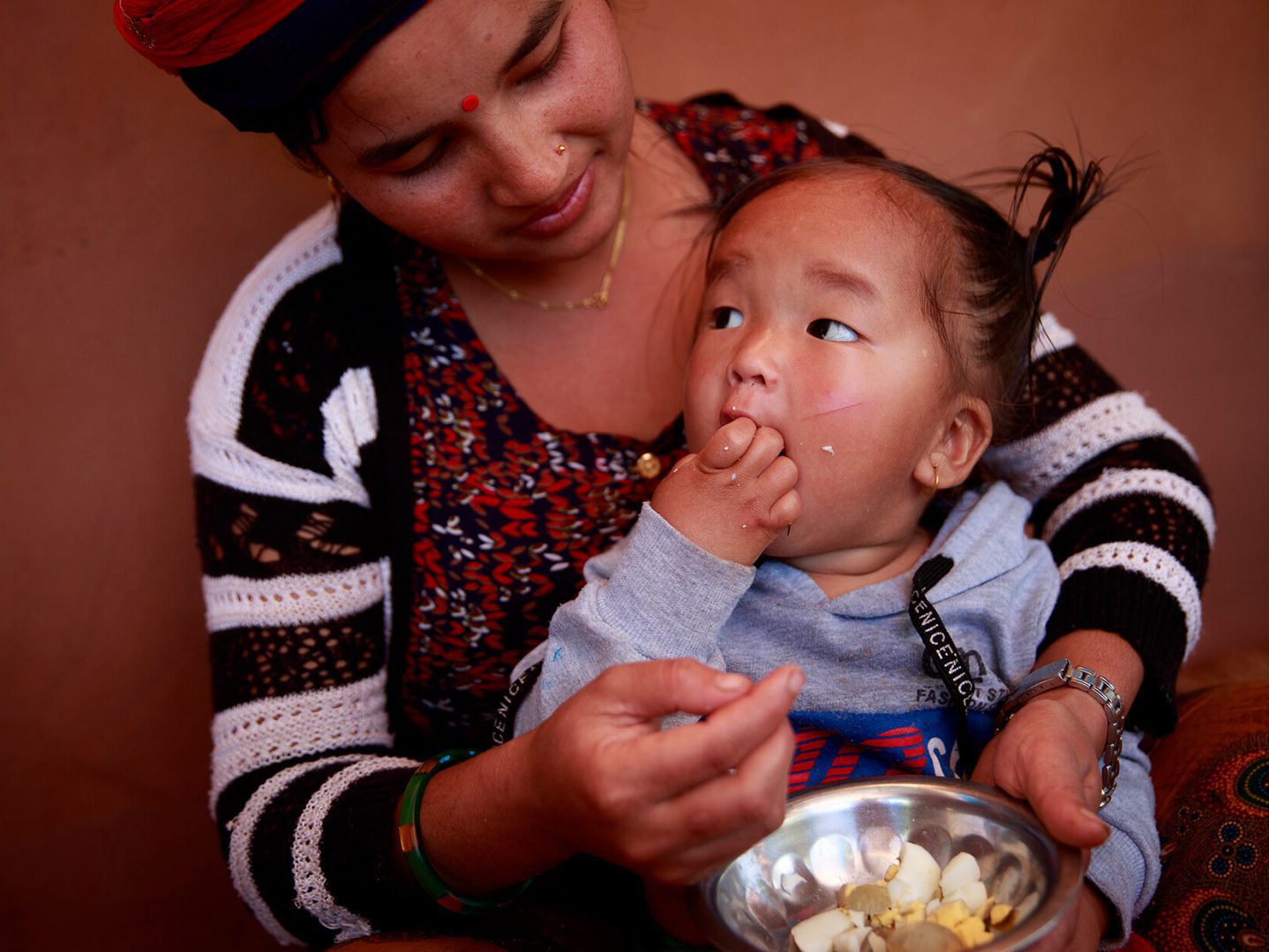The right nutrition, at the right time, helps young Thu grow strong
Three-year-old Linn Linn Thu lives with his parents and seven siblings, ages 2-18, in Myanmar’s Yae Lae Chaung village. His father U Kyaw Soe Naing is a laborer earning 3,000 kyat (about $1.60) per day.

Thu’s mother, Naw Phae Aye, worries not only about her children’s safety amidst ongoing humanitarian crisis in her country, but how and what to feed her family each day. It’s a question that families in every corner of the globe ask themselves in light of the growing challenges COVID-19, climate change, and conflicts like the war in Ukraine create.
Earlier this year, Thu’s mother noticed her son was lagging behind her other children’s growth and development. He was frequently ill and struggled to eat. He weighed just 14 pounds, when the expected weight for a child his age and height is 31 pounds.
Thu is one of thousands of children in Myanmar’s Ayeyarwady region challenged by malnutrition.
“Because of the implications of COVID-19 and economic crisis in the country, everyone is suffering, including children like Thu, who are malnourished,” a Helen Keller staff leader explains.
Lagging behind the others
During Thu’s first visit with Helen Keller’s community health team, he was weighed, and his upper arm measured. Health workers checked his arms, legs, and abdomen for swelling, called edema, and discussed his appetite and food intake with his mother. He was found to be severely malnourished, and immediately fed nutrient-rich, ready-to-use therapeutic food. His mother received guidance on ways to increase his nutrition at home, including feeding Thu additional packets of ready-to-use therapeutic food between follow-up appointments.

Ready-to-use therapeutic food is an energy-dense micronutrient paste of peanuts, sugar, milk powder, oil, vitamins, and minerals – a go-to treatment for many of the malnourished children Helen Keller Intl treats, and one essential tool in the fight against the world’s growing hunger crisis.
Over the course of just a few visits, Thu gained weight and moved closer to an appropriate weight. Together with the Helen Keller team, his mother developed longer-term strategies for improving nutrition for Thu and her entire family.
Almost immediate results
Mothers are key to the progress children like Thu make, so Helen Keller’s community health workers focus on reaching mothers with practical tips they can employ at home to keep their families well fed and growing healthfully.
With regular monitoring, and food and nutritional supplementation, Thu’s health improved almost immediately. Despite a brief fever and illness early on, Thu gained 2 pounds in a few short weeks. Within a month, he had gained 11 pounds, and weighed 25 pounds.
Thank you for supporting my son’s rapid recovery, and for doing this work long term.
Naw Phae Aye
Today, Thu continues to grow taller and gain weight. His progress illustrates how the right support, nutrition, and health care, at the right time, improves and saves lives.
Thu’s mother is hopeful others might benefit from the support her family received from Helen Keller. “Thank you for supporting my son’s rapid recovery, and for doing this work long term,” Naw Phae Aye said.

You can meet the nutritional needs of more children like Thu – especially in these times of rising global hunger.









